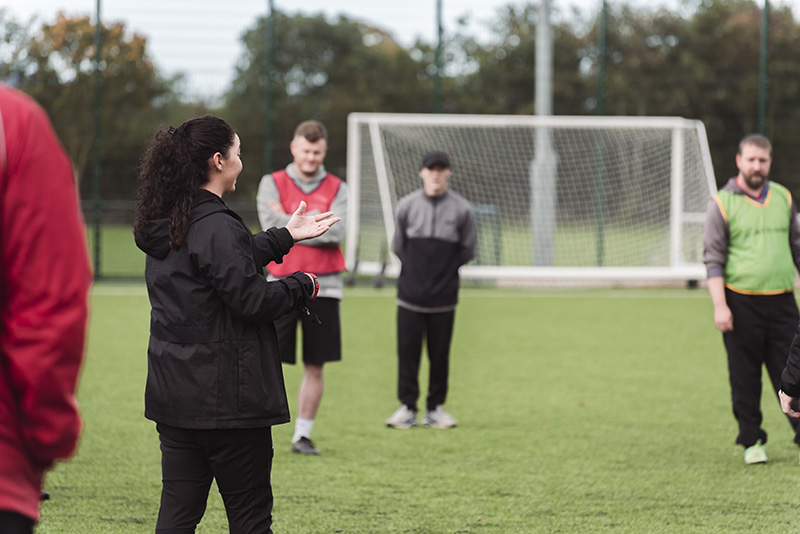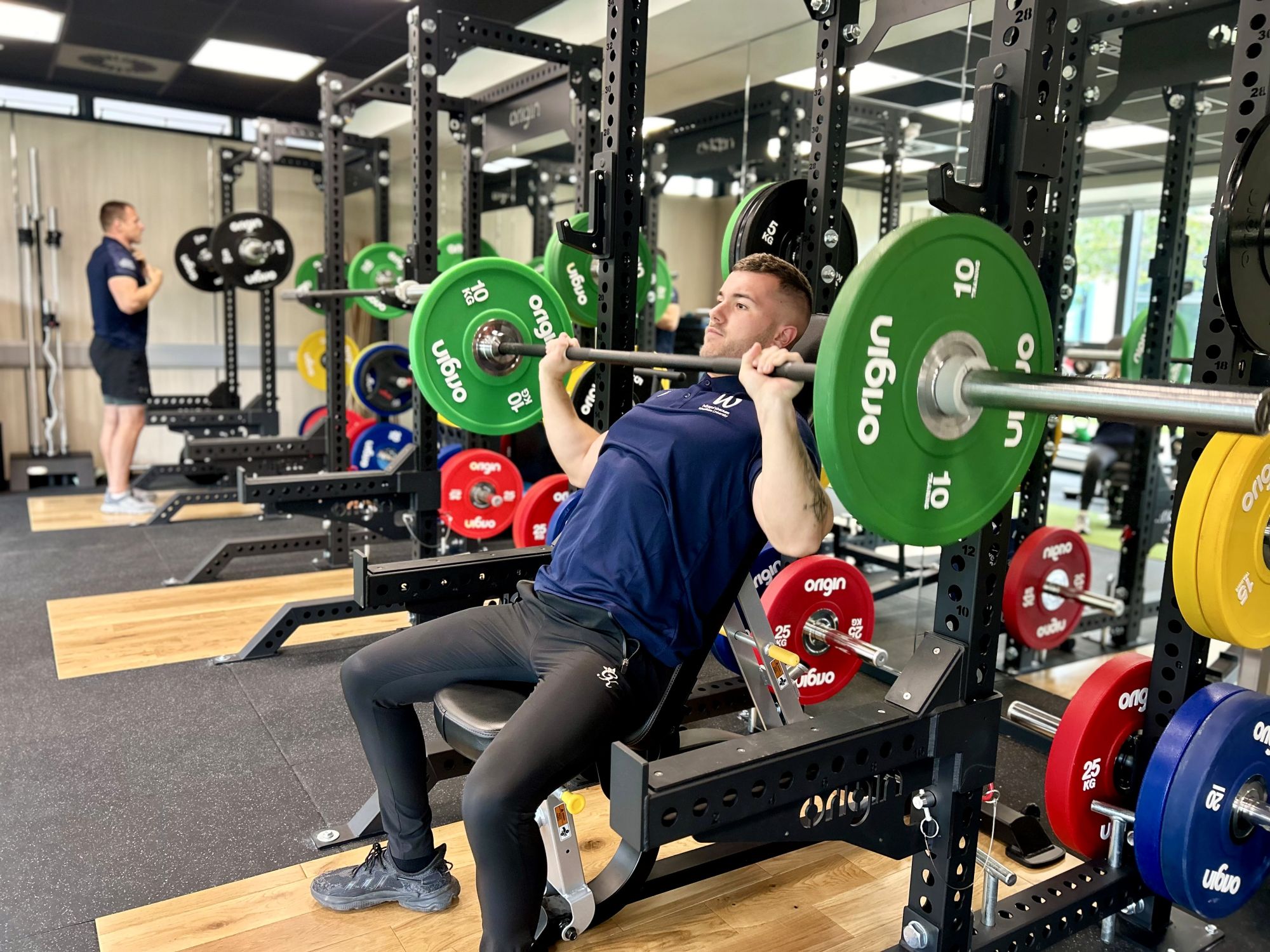(Short Course) Introduction to Performance Science in Football

Course details
Year of entry
2026
Duration
9 weeks
Institution Code
G53
Location
Online
Why choose this course?
Gain an essential introduction to the science behind elite football performance. This flexible, online module is tailored for students and practitioners eager to understand the physical, tactical, technical, and psychological demands of the modern game.
Whether you're starting your journey or advancing your applied knowledge, this course provides the foundation to support player development and performance at all levels.
Students will:
- Learn from experts in performance science with football-specific insight
- Explore real-world topics such as injury reduction, tactical trends, and nutrition
- Develop applied skills through practical tasks and session design
- Benefit from a flexible, distance-learning format ideal for busy schedules
- Build a strong foundation for further study or professional development in sport science and coaching
Key course features
- Football-specific focus covering physiology, psychology, nutrition, and tactical periodisation
- Insight into current tactical trends and high-performance culture in European football
- Module assessment built around real-world tasks – no traditional exams
- Asynchronous learning with on-demand video lectures to suit your schedule
- Supported by academic experts through virtual tutorials and guided tasks
- Ideal stepping stone to advanced study in sport science, coaching, or performance analysis
What you will study
This course is delivered over 8 core topics, each focusing on a key element of performance science in football. Students will engage with interactive content, short video lectures, and applied tasks each week.
Week 1: Introduction to the Platform
Get oriented with the virtual learning environment, assessment format, and course expectations. Learn how to navigate resources and engage with content effectively.
Week 2: The Demands of Football
Explore the physical, technical, tactical, and psychological demands placed on football players at different levels of the game, supported by current research and match data.
Week 3: Developing Resilience in Football
Understand mental toughness, coping strategies, and the psychological frameworks used to build player resilience in elite and grassroots football settings.
Week 4: Game Model Building & Development
Learn how to design a team’s game model, linking tactical principles with player roles and performance outcomes.
Week 5: Injury Reduction Strategies
Examine common football injuries, their causes, and evidence-based approaches to injury prevention and load management.
Week 6: Leadership and Culture for High Performance Football
Study the influence of leadership styles, communication, and team culture in creating and sustaining a high-performance environment.
Week 7: Current Tactical Trends in European Football
Week 8: Football Nutrition and the Role of the Nutritionist
Gain an introductory understanding of football-specific nutrition, fuelling strategies, and the role of the sports nutritionist in performance and recovery.
Bonus Topic: Competitive Football Training Periodisation (Optional Extension)
A brief overview of how training is structured across a season to optimise player performance and manage fatigue.
Teaching & Assessment
This module follows a blended learning approach with an emphasis on active learning. It is delivered entirely online via the university's virtual learning platform (Moodle).
The teaching methods include:
- Asynchronous Video Lectures: Each topic is presented in three 20-minute videos, designed to be engaging and informative.
- Interactive Tasks: After each video, students will complete tasks to test their understanding and apply key concepts in real-world scenarios.
- Supplementary Readings: Required readings and resources will be provided to deepen understanding and provide context.
- Virtual Tutorials: Opportunities for one-on-one tutorials with the module leader will be available for further support and clarification of content.
Workload and Levels of Teaching:
- The course requires approximately 5-6 hours of study per week. This includes watching lectures, completing tasks, reading, and preparing for assessments.
- Level: This module is designed for undergraduate or postgraduate students, with the content aimed at providing a strong foundational knowledge in performance science specific to football.
- Students should expect a moderate level of independent learning alongside guided instruction.
How Students Will Be Assessed:
Students will be assessed based on a combination of written and practical tasks:
- 4 x Short Multiple Choice Questions (MCQs): These will assess understanding of key concepts from the video lectures.
- 2 x Session Design Tasks: Students will create football training sessions that align with the physiological and tactical demands discussed in the course.
- 2 x Short Essays: These essays will require students to reflect on specific course topics such as injury reduction strategies or football nutrition, providing an opportunity for in-depth exploration of key areas.
Student Engagement Expectation:
- Online Study Time: Students should expect to spend 5-6 hours per week engaging with online content (watching videos, reading, completing tasks).
- Active Participation: Students are expected to actively engage with discussion boards, tutorials, and other interactive elements within the online learning platform to support their learning and deepen their understanding of the material.
- Assessment Preparation: Additional time will be required for assessments, especially for the essay and session design tasks.
Fees & funding
£95
For current students please contact shortcourses@wrexham.ac.uk before you book your place to request a discount code for a reduced fee
Please note, short course prices are subject to review for 25/26 please contact shortcourses@wrexham.ac.uk if you have any queries.
Do you live in Wales? We have a number of funding opportunities available, please complete the form below to find out if you are eligible to study this course for free. Apply now via this form.
Once you have completed your fee waiver application this will go to our funding team to process, and we will then contact you as soon as possible to let you know if you are eligible or not to have your fees waived..
If you are eligible, we will then contact you to let you know how to secure your place on the course..
* Please note the fee waiver is only available to students studying 30 credits or less in an academic year. If you commence further study during this academic year, which will take you over 30 credits, this may result in the fee waiver being removed and you may be charged for the short course.
Course Dates
Start Date: Monday 1st June 2026 - Book Now
Learners are able to engage with the online activities independently each week in their own time. All learning content will be uploaded to moodle on Monday each week.
.jpeg)

.jpg)

